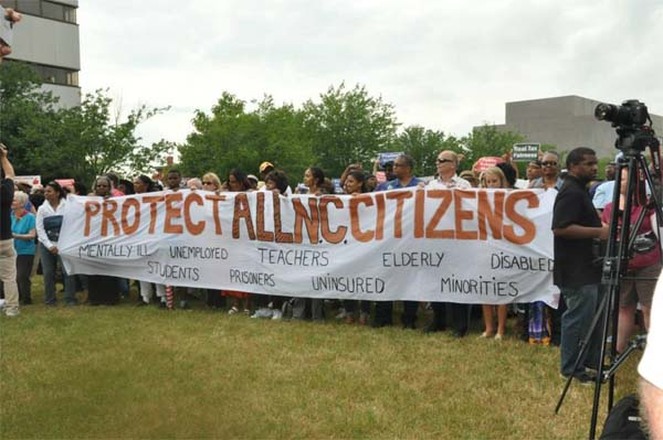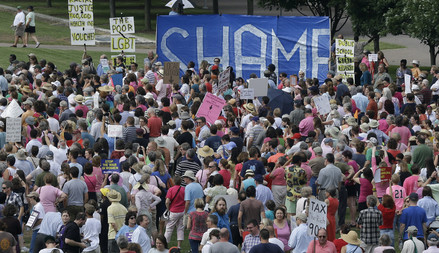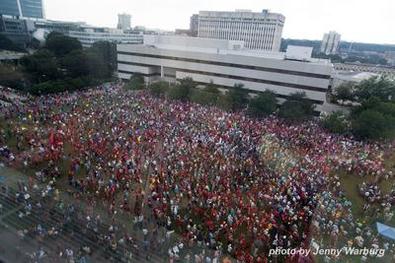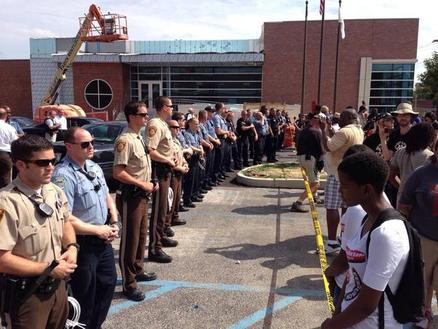This intervention is designed to end Government By Troll and Dark Money billionaires who corrupt our democracy and subvert the constitution of the United States of America.
www.GoProgressives.com
The Twelve Steps
1. End Corporate Personhood: Pass and Ratify the 28th Amendment to end this corrosive legal fiction of Citizens United/SCOTUS decision that grants human rights to a lifeless legal entity, on the basis that money is speech, with no evidence of corrupting influence in politics.
2. Guarantee Voting Rights: Enact the VOTING RIGHTS ACT to secure the ballot box, guarantee ease of access, availability for all citizens nationwide. Remove voting from political influence and purchased allegiance.
3. Outlaw Lobbying: Close K Street and the Banking/Defense/Medical/Congressional revolving door that breeds systematic political bribery, delayed promises of employment, hiring of family members. Register for public disclosure all meetings between elected officials and their employees.
4. Restore Banks & Regulate Wall Street: Restore Glass-Steagall, Tax Financial Transactions, Breakup the Big Banks. Too big to fail and too big to prosecute means too big to allow, risk or tolerate. Outlaw commodity ownership by hedge funds.
5. Prosecute Financial Crimes as Crimes: Mandate Jail-time for big and repeat offenders, enact a Corporate Death Penalty for egregious repeat offenders, and mandate full disclosure all regulatory settlements, on public media.
6. Get the Greed Out of Politics with Political Campaign Finance Reform: Full Financial Disclosure for all PACs and NPOs, Set strict donation limits and Publicly Finance State and Federal Political Campaigns, establish equitable Non-partisan Congressional District Reform to end gerrymandering.
7. Simplify the Tax Code with incentives for First Homes and Education: Tax All Income at same progressive rates, Close Corporate Loopholes, Keep Deductions on First Homes, add Student Loan Deduction.
8. Guarantee Workplace Rights: Equitably Adjust and Index the Minimum Wage, Mandate Equal Pay for Women, guarantee Workers Right to Organize.
9. Establish Smart Grid based on Neighborhood Energy Production: Fund and Implement Home Solar Expansion, Build the Smart Grid and Mandate Peak Time Solar Buy-back Rates to promote decentralized green energy production.
10. Guarantee Human and Health Rights: Reestablish oversight of NSA and reverse the militarization of local police forces, establish basic Medicare for All with Reproductive Rights, enact Real Immigration reform with dignity and citizenship.
11. End the War on Drugs: Treat Addiction Medically, End Jail for Minor Drug Offenses, Accurately Reclassify Marijuana as Class 3 narcotic, and release all nonviolent marijuana offenders.
12. End Prisons for Profit: Don't outsource Justice. Justice is our Public Duty and cannot be responsibly assigned for money. Lack of money is not a crime and must never cause incarceration.
www.GoProgressives.com
The Twelve Steps
1. End Corporate Personhood: Pass and Ratify the 28th Amendment to end this corrosive legal fiction of Citizens United/SCOTUS decision that grants human rights to a lifeless legal entity, on the basis that money is speech, with no evidence of corrupting influence in politics.
2. Guarantee Voting Rights: Enact the VOTING RIGHTS ACT to secure the ballot box, guarantee ease of access, availability for all citizens nationwide. Remove voting from political influence and purchased allegiance.
3. Outlaw Lobbying: Close K Street and the Banking/Defense/Medical/Congressional revolving door that breeds systematic political bribery, delayed promises of employment, hiring of family members. Register for public disclosure all meetings between elected officials and their employees.
4. Restore Banks & Regulate Wall Street: Restore Glass-Steagall, Tax Financial Transactions, Breakup the Big Banks. Too big to fail and too big to prosecute means too big to allow, risk or tolerate. Outlaw commodity ownership by hedge funds.
5. Prosecute Financial Crimes as Crimes: Mandate Jail-time for big and repeat offenders, enact a Corporate Death Penalty for egregious repeat offenders, and mandate full disclosure all regulatory settlements, on public media.
6. Get the Greed Out of Politics with Political Campaign Finance Reform: Full Financial Disclosure for all PACs and NPOs, Set strict donation limits and Publicly Finance State and Federal Political Campaigns, establish equitable Non-partisan Congressional District Reform to end gerrymandering.
7. Simplify the Tax Code with incentives for First Homes and Education: Tax All Income at same progressive rates, Close Corporate Loopholes, Keep Deductions on First Homes, add Student Loan Deduction.
8. Guarantee Workplace Rights: Equitably Adjust and Index the Minimum Wage, Mandate Equal Pay for Women, guarantee Workers Right to Organize.
9. Establish Smart Grid based on Neighborhood Energy Production: Fund and Implement Home Solar Expansion, Build the Smart Grid and Mandate Peak Time Solar Buy-back Rates to promote decentralized green energy production.
10. Guarantee Human and Health Rights: Reestablish oversight of NSA and reverse the militarization of local police forces, establish basic Medicare for All with Reproductive Rights, enact Real Immigration reform with dignity and citizenship.
11. End the War on Drugs: Treat Addiction Medically, End Jail for Minor Drug Offenses, Accurately Reclassify Marijuana as Class 3 narcotic, and release all nonviolent marijuana offenders.
12. End Prisons for Profit: Don't outsource Justice. Justice is our Public Duty and cannot be responsibly assigned for money. Lack of money is not a crime and must never cause incarceration.
We're Winning - Keep at It - Read How
The Middle Class is Fighting for Our Rights - Tell the Trolls - Time's up!
the Ferguson story is now in - Body Cameras on cops - Wilson "fund" Abandoned
That's a Big Win, People!
Following the Cincinnati Blueprint
“Once people get organized, they become focused on what they want, and that’s when the shift happens,” Roley said.
The result was the Collaborative Agreement of 2002, signed by the local ACLU, the Black United Front, the city government and the police union. It outlined a series of reforms that would profoundly alter the way police and blacks dealt with each other. A related deal with the Department of Justice went a step further, adding a federal monitor to oversee compliance
After six years, the federal government stepped away. Left in place was a new culture of law enforcement, and a growing confidence among blacks. Police began closely tracking the use of force and traffic stops, and readily shared that information with the public. They adopted a “problem-oriented policing” strategy to focus on the most troublesome places and people. They trained officers to be more mindful of citizens’ concerns. They improved recruiting. They set up an “early warning system” to identify rogue officers. The city also created a Citizens Complaint Authority to investigate police shootings, other uses of force and accusations of misconduct.
|
Ferguson Cops Get Body Cameras After Michael Brown Shooting
Police officers in Ferguson, Missouri, have started wearing body cameras weeks after a cop shot dead an unarmed teenager during a confrontation. The recording devices were first used at a Saturday march protesting the death of Michael Brown, and training for the entire police force is nearly complete, officials told NBC affiliate KSDK. Two private security firms donated the cameras amid an uproar over police tactics in the St. Louis suburb.
More than 1,000 police departments around the country use similar cameras. Despite some privacy concerns, the gadgets have won the support of law-enforcement officials and civil libertarians. In Celina, Texas, which began equipping officers with the $300 devices nine months ago, police brass say it's a crucial tool because it captures exactly what the officer sees when interacting with a suspect. "Documentation, accountability, transparency is part of what we do now, and it should be," Chief Mark Metdker told NBC News. ----------------------------------------------------------- The Cincinnati Blueprint for Responsible Policing - It Works! ACLU negotiated a Blueprint For Better Policing & Community Peace in 2002,it is working still! THE CINCINNATI COLLABORATIVE AGREEMENT ACLU 02.05.13 The Cincinnati Collaborative Agreement is one of the most innovative plans ever devised to improve police-community relations. Created as a response to a community troubled by ongoing violence and lack of understanding between police and community members, the agreement engages both police and everyday citizens to invest in the neighborhood and make their environment a better place for both groups. The agreement resulted from a settlement after the ACLU joined with the Cincinnati Black United Front to file suit in 2001 alleging racial profiling and discriminatory law enforcement. Enacted in April 2002 with a five-year time frame, the agreement outlined these objectives:
Read the ACLU’s 2009 Appendix to the Rand Corporation’s five year report on the Cincinnati Police Department Rand Corporation’s 2006 independent analysis of the Cincinnati Police Department Rand Corporation messy as it is,
|
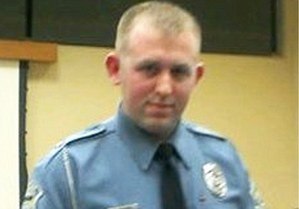
Ferguson fundraiser mystery solved -- or is it?
by Matt Pearce Sept 1, 2014 Los Angeles Times (exerpts) Two online fundraising pages that raised more than $400,000 for the police officer who killed an unarmed black man in Ferguson, Mo., were shut down this weekend so tax lawyers could decide how best to handle the money, an official told the Los Angeles Times. ------------------------------------------------------------------- The first page, “Support Officer Darren Wilson,” had raised the most concern because its creator was anonymous and had not received certified status from GoFundMe. Missouri state Rep. Jeffrey Roorda, a Democrat who is helping to handle Wilson’s fundraising efforts, said the creator of that page is a teenage girl from the St. Louis area. “I think she thought she’d raise a few hundred dollars, and she ended up raising a few hundred thousand dollars,” Roorda said in a phone interview Monday night. After her page got popular, Roorda said, the young woman started receiving “serious threats.” Roorda said he doesn’t know how old she is or whether she’s a minor; he described her as a “teenage girl,” a “young girl." When The Times relayed Roorda’s story to the anonymous accountholder of the page purportedly created by the girl, however, an unidentified administrator responded: “I can tell you I have not worked with or spoken with Rep. Roorda. The information you have been given is false.” Roorda replied, “So what part’s false?” adding that he hadn’t personally met the girl but that other police officials had met her to thank her. Once again, however, an anonymous administrator denied the story. “We can guarantee you the information is not correct,” a subsequent email said. “We cannot control what you may choose to report/publish but we do want you to know when information is inaccurate. We appreciate your understanding regarding this matter.” ------------------------------------------------------------------------ Also muddying matters in recent days was an anonymously run Facebook page called “Support Darren Wilson,” with more than 77,000 likes.
In status updates over the weekend, the page’s operator had purported to know why the fundraising efforts had been halted but declined to share more information with supporters – some of whom saw their comments deleted after they raised questions about who was handling the money. “It’s a third-party thing,” Roorda said of the Facebook page. “It’s a fellow out of Texas who reached out early on, wanted to know how to help. We told him about the young girl’s charitable efforts, he put the page up, and has promoted those efforts.” Roorda is vice president of Shield of Hope -- the charitable wing of the Fraternal Order of Police union, to which Wilson belongs -- as well as a Democratic candidate for state Senate. (Earlier this year, Roorda sponsored a bill that, in addition to other changes, would have kept the names of officers involved in shootings secret unless they were charged. Roorda told The Times he is no longer pushing for that legislation.) Roorda said Shield of Hope -- whose officers include a spokesman for the Ferguson Police Department and a Florissant city council member -- created the second Wilson fundraising page after the girl’s mom asked the union to take over. ------------------------------------------------------------------------ After a previous Times story identified Roorda as a member of the Wilson fundraising effort, social media users took note of details about his professional history. Roorda was fired from the police force of Arnold, a St. Louis exurb, in 2001. His superiors accused him of filing a false statement against a suspect in 1997 and against his own police chief in 2001 when the chief declined to give Roorda paid paternity leave, according to Missouri court records. The People's Pledge |
